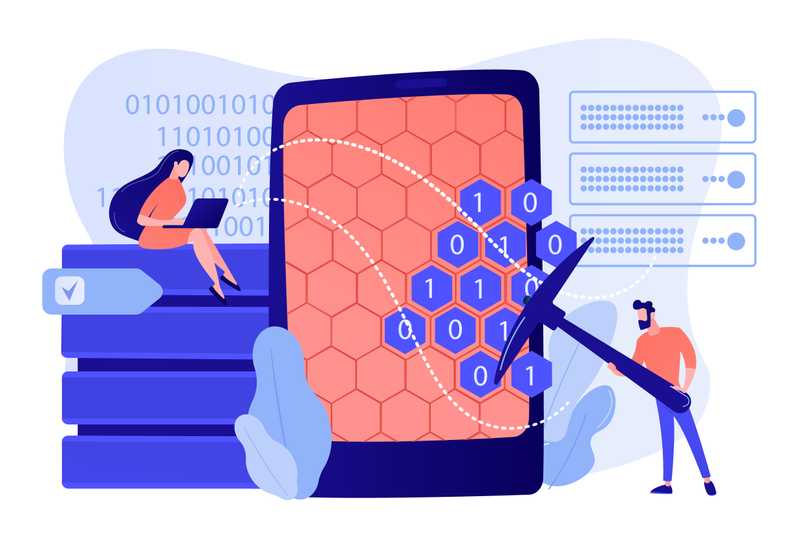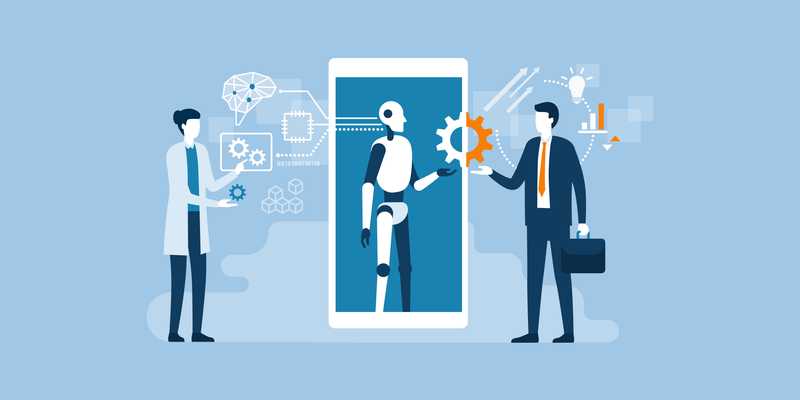If you’ve graduated with a data science degree or bootcamp, put together an impressive portfolio, polished your programming and quantitative analytics skills, and have scored a coveted interview with a Netflix recruiter or hiring manager, you might understandably be nervous about what comes next.
Interviewing for any role can be an intimidating experience, but the best way to ensure a successful interview is to be prepared for what you’ll be asked and to know what the company is looking for. Data scientists who have interviewed with Netflix share their own experiences below.
Data science roles at Netflix are highly competitive and difficult to land. Fortunately, enough people have successfully gone through the Netflix data scientist interview process to share their experiences and offer valuable advice. Read on to learn more.
What does a data scientist at Netflix do?
When it comes to filling out its ranks, Netflix is known for a few key practices: it almost exclusively hires senior-level professionals who have at least five years of experience, and it hires for ultra-specific roles to meet the needs of its teams. This means the responsibilities of a Netflix data scientist can greatly vary depending on the team they’ve joined—some might spend the bulk of their time working on personalization algorithms, while others might focus on product research and tooling, or teaming up with user interface designers and engineers to figure out how to optimize the user experience.
Regardless of the team, though, Netflix’s data scientists can be sure that their contributions have a meaningful impact on Netflix’s products and services. As a growing number of entertainment companies invest in streaming, the demand for data scientists and analysts has grown alongside it, and nowhere is this more apparent than at Netflix.
“You do not make a $100 million investment these days without an awful lot of analytics,” Dave Hasting, Netflix’s direction of product analytics, said in 2015.
Data scientists at Netflix assist in forecasting, operations research, topic modeling, user segmentation, and content recommendations. They also used data to guide accurate decision-making. For example, the company’s data analytics division has helped the company with planning budgets, finding locations, building sets, and scheduling actors. Data scientists have also built models that allow production executives to make critical decisions using data-centric ‘what-if’ scenarios, rather than relying on their best guesses.
What skills does a data scientist at Netflix require?
Netflix typically hires data scientists to meet the needs of specific teams, which means skill requirements can vary from role to role. That said, most data scientists at Netflix have a quantitative analytics background and sufficient past experience in data science field that allows them to take ownership of projects.
Other skills commonly shared by Netflix’s data scientists include proficiency with programming languages such as SQL, Java, Scala, and Python; experience with statistics, hypothesis testing, and developing metrics; experience with engineering data pipelines using big data technologies such as Hive, Hadoop, and Spark; being able to crystalize vague requirements and develop scalable solutions; and strong communication skills.
Get To Know Other Data Science Students
Jonathan King
Sr. Healthcare Analyst at IBM
Garrick Chu
Contract Data Engineer at Meta
Bret Marshall
Software Engineer at Growers Edge
What is the interview process for a data scientist at Netflix like?
Similar to other technology companies, the data science job interview process at Netflix begins with an online application. Candidates whose résumés impress will then move onto a phone screening with a hiring manager who will ask both HR-type and technical interview questions, before doing onsite interviews at Netflix’s offices in either Los Gatos, CA, or Los Angeles.
- The phone screener
Data scientists who have interviewed with Netflix report that the initial phone screener can be heavy on technical questions and that the company’s recruiters like to dig deep into a candidate’s prior projects and experience. Expect specific questions about why you chose a certain algorithm for a project, or how you built a certain machine learning or analytics system.
- The culture dek
Netflix stresses the importance of its company culture, so candidates should be prepared to talk about how they align with that culture. Candidates should also come ready to talk about how prior experiences and projects demonstrate their commitment to Netflix’s values such as independent decision-making, curiosity, clear communication, selflessness, and innovation. Data scientists who have interviewed with Netflix strongly recommend reading about Netflix’s culture ahead of the interview.
- The in-person interview
The Netflix interview loop for data scientists consists of interviews with six or seven hiring managers, data scientists, engineers, and executives.
Similar to the phone screener, candidates can expect behavioral/culture questions such as “How do you give feedback? Offer an example,” technical questions such as “What is the best way to communicate ML results to stakeholders?” and product questions specific to Netflix such as “How would you build and test a metric to compare two users’ ranked lists of movie and TV show preferences?”
What happens after the interview process?
While there is no take-home test, past interview candidates have been required to design experiments, answer SQL questions, apply their statistics and probability knowledge to come up with solutions, and discuss regression and classification modeling concepts.
Other questions that former interviewees have been asked include:
- Given a month’s worth of login data from Netflix such as accountid, deviceid, and metadata concerning payments, how would you detect fraud?
- What do you know about A/B testing in the context of streaming?
- How would you select a representative sample of search queries from five million?
- How would you approach attribution modeling to measure marketing effectiveness?
- How would you determine if the price of a Netflix subscription is truly the deciding factor for a consumer?
- What are the differences between L1 and L2 regularization?
- What is the difference between online and batch gradient descent?
- Write the equation for building a classifier using Logistic Regression.
- If Netflix is looking to expand its presence in Asia, what are some factors that you can use to evaluate the size of the Asia market, and what can Netflix do to capture this market?
- Write SQL queries to find a time difference between two events.
- How would you design an experiment for a new content recommendation model we’re thinking of rolling out? What metrics would matter?
Companies are no longer just collecting data. They’re seeking to use it to outpace competitors, especially with the rise of AI and advanced analytics techniques. Between organizations and these techniques are the data scientists – the experts who crunch numbers and translate them into actionable strategies. The future, it seems, belongs to those who can decipher the story hidden within the data, making the role of data scientists more important than ever.
In this article, we’ll look at 13 careers in data science, analyzing the roles and responsibilities and how to land that specific job in the best way. Whether you’re more drawn out to the creative side or interested in the strategy planning part of data architecture, there’s a niche for you.
Is Data Science A Good Career?
Yes. Besides being a field that comes with competitive salaries, the demand for data scientists continues to increase as they have an enormous impact on their organizations. It’s an interdisciplinary field that keeps the work varied and interesting.
10 Data Science Careers To Consider
Whether you want to change careers or land your first job in the field, here are 13 of the most lucrative data science careers to consider.
Data Scientist
Data scientists represent the foundation of the data science department. At the core of their role is the ability to analyze and interpret complex digital data, such as usage statistics, sales figures, logistics, or market research – all depending on the field they operate in.
They combine their computer science, statistics, and mathematics expertise to process and model data, then interpret the outcomes to create actionable plans for companies.
General Requirements
A data scientist’s career starts with a solid mathematical foundation, whether it’s interpreting the results of an A/B test or optimizing a marketing campaign. Data scientists should have programming expertise (primarily in Python and R) and strong data manipulation skills.
Although a university degree is not always required beyond their on-the-job experience, data scientists need a bunch of data science courses and certifications that demonstrate their expertise and willingness to learn.
Average Salary
The average salary of a data scientist in the US is $156,363 per year.
Data Analyst
A data analyst explores the nitty-gritty of data to uncover patterns, trends, and insights that are not always immediately apparent. They collect, process, and perform statistical analysis on large datasets and translate numbers and data to inform business decisions.
A typical day in their life can involve using tools like Excel or SQL and more advanced reporting tools like Power BI or Tableau to create dashboards and reports or visualize data for stakeholders. With that in mind, they have a unique skill set that allows them to act as a bridge between an organization’s technical and business sides.
General Requirements
To become a data analyst, you should have basic programming skills and proficiency in several data analysis tools. A lot of data analysts turn to specialized courses or data science bootcamps to acquire these skills.
For example, Coursera offers courses like Google’s Data Analytics Professional Certificate or IBM’s Data Analyst Professional Certificate, which are well-regarded in the industry. A bachelor’s degree in fields like computer science, statistics, or economics is standard, but many data analysts also come from diverse backgrounds like business, finance, or even social sciences.
Average Salary
The average base salary of a data analyst is $76,892 per year.
Business Analyst
Business analysts often have an essential role in an organization, driving change and improvement. That’s because their main role is to understand business challenges and needs and translate them into solutions through data analysis, process improvement, or resource allocation.
A typical day as a business analyst involves conducting market analysis, assessing business processes, or developing strategies to address areas of improvement. They use a variety of tools and methodologies, like SWOT analysis, to evaluate business models and their integration with technology.
General Requirements
Business analysts often have related degrees, such as BAs in Business Administration, Computer Science, or IT. Some roles might require or favor a master’s degree, especially in more complex industries or corporate environments.
Employers also value a business analyst’s knowledge of project management principles like Agile or Scrum and the ability to think critically and make well-informed decisions.
Average Salary
A business analyst can earn an average of $84,435 per year.
Database Administrator
The role of a database administrator is multifaceted. Their responsibilities include managing an organization’s database servers and application tools.
A DBA manages, backs up, and secures the data, making sure the database is available to all the necessary users and is performing correctly. They are also responsible for setting up user accounts and regulating access to the database. DBAs need to stay updated with the latest trends in database management and seek ways to improve database performance and capacity. As such, they collaborate closely with IT and database programmers.
General Requirements
Becoming a database administrator typically requires a solid educational foundation, such as a BA degree in data science-related fields. Nonetheless, it’s not all about the degree because real-world skills matter a lot. Aspiring database administrators should learn database languages, with SQL being the key player. They should also get their hands dirty with popular database systems like Oracle and Microsoft SQL Server.
Average Salary
Database administrators earn an average salary of $77,391 annually.
Data Engineer
Successful data engineers construct and maintain the infrastructure that allows the data to flow seamlessly. Besides understanding data ecosystems on the day-to-day, they build and oversee the pipelines that gather data from various sources so as to make data more accessible for those who need to analyze it (e.g., data analysts).
General Requirements
Data engineering is a role that demands not just technical expertise in tools like SQL, Python, and Hadoop but also a creative problem-solving approach to tackle the complex challenges of managing massive amounts of data efficiently.
Usually, employers look for credentials like university degrees or advanced data science courses and bootcamps.
Average Salary
Data engineers earn a whooping average salary of $125,180 per year.
Database Architect
A database architect’s main responsibility involves designing the entire blueprint of a data management system, much like an architect who sketches the plan for a building. They lay down the groundwork for an efficient and scalable data infrastructure.
Their day-to-day work is a fascinating mix of big-picture thinking and intricate detail management. They decide how to store, consume, integrate, and manage data by different business systems.
General Requirements
If you’re aiming to excel as a database architect but don’t necessarily want to pursue a degree, you could start honing your technical skills. Become proficient in database systems like MySQL or Oracle, and learn data modeling tools like ERwin. Don’t forget programming languages – SQL, Python, or Java.
If you want to take it one step further, pursue a credential like the Certified Data Management Professional (CDMP) or the Data Science Bootcamp by Springboard.
Average Salary
Data architecture is a very lucrative career. A database architect can earn an average of $165,383 per year.
Machine Learning Engineer
A machine learning engineer experiments with various machine learning models and algorithms, fine-tuning them for specific tasks like image recognition, natural language processing, or predictive analytics. Machine learning engineers also collaborate closely with data scientists and analysts to understand the requirements and limitations of data and translate these insights into solutions.
General Requirements
As a rule of thumb, machine learning engineers must be proficient in programming languages like Python or Java, and be familiar with machine learning frameworks like TensorFlow or PyTorch. To successfully pursue this career, you can either choose to undergo a degree or enroll in courses and follow a self-study approach.
Average Salary
Depending heavily on the company’s size, machine learning engineers can earn between $125K and $187K per year, one of the highest-paying AI careers.
Quantitative Analyst
Qualitative analysts are essential for financial institutions, where they apply mathematical and statistical methods to analyze financial markets and assess risks. They are the brains behind complex models that predict market trends, evaluate investment strategies, and assist in making informed financial decisions.
They often deal with derivatives pricing, algorithmic trading, and risk management strategies, requiring a deep understanding of both finance and mathematics.
General Requirements
This data science role demands strong analytical skills, proficiency in mathematics and statistics, and a good grasp of financial theory. It always helps if you come from a finance-related background.
Average Salary
A quantitative analyst earns an average of $173,307 per year.
Data Mining Specialist
A data mining specialist uses their statistics and machine learning expertise to reveal patterns and insights that can solve problems. They swift through huge amounts of data, applying algorithms and data mining techniques to identify correlations and anomalies. In addition to these, data mining specialists are also essential for organizations to predict future trends and behaviors.
General Requirements
If you want to land a career in data mining, you should possess a degree or have a solid background in computer science, statistics, or a related field.
Average Salary
Data mining specialists earn $109,023 per year.
Data Visualisation Engineer
Data visualisation engineers specialize in transforming data into visually appealing graphical representations, much like a data storyteller. A big part of their day involves working with data analysts and business teams to understand the data’s context.
General Requirements
Data visualization engineers need a strong foundation in data analysis and be proficient in programming languages often used in data visualization, such as JavaScript, Python, or R. A valuable addition to their already-existing experience is a bit of expertise in design principles to allow them to create visualizations.
Average Salary
The average annual pay of a data visualization engineer is $103,031.
Resources To Find Data Science Jobs
The key to finding a good data science job is knowing where to look without procrastinating. To make sure you leverage the right platforms, read on.
Job Boards
When hunting for data science jobs, both niche job boards and general ones can be treasure troves of opportunity.
Niche boards are created specifically for data science and related fields, offering listings that cut through the noise of broader job markets. Meanwhile, general job boards can have hidden gems and opportunities.
Online Communities
Spend time on platforms like Slack, Discord, GitHub, or IndieHackers, as they are a space to share knowledge, collaborate on projects, and find job openings posted by community members.
Network And LinkedIn
Don’t forget about socials like LinkedIn or Twitter. The LinkedIn Jobs section, in particular, is a useful resource, offering a wide range of opportunities and the ability to directly reach out to hiring managers or apply for positions. Just make sure not to apply through the “Easy Apply” options, as you’ll be competing with thousands of applicants who bring nothing unique to the table.
FAQs about Data Science Careers
We answer your most frequently asked questions.
Do I Need A Degree For Data Science?
A degree is not a set-in-stone requirement to become a data scientist. It’s true many data scientists hold a BA’s or MA’s degree, but these just provide foundational knowledge. It’s up to you to pursue further education through courses or bootcamps or work on projects that enhance your expertise. What matters most is your ability to demonstrate proficiency in data science concepts and tools.
Does Data Science Need Coding?
Yes. Coding is essential for data manipulation and analysis, especially knowledge of programming languages like Python and R.
Is Data Science A Lot Of Math?
It depends on the career you want to pursue. Data science involves quite a lot of math, particularly in areas like statistics, probability, and linear algebra.
What Skills Do You Need To Land an Entry-Level Data Science Position?
To land an entry-level job in data science, you should be proficient in several areas. As mentioned above, knowledge of programming languages is essential, and you should also have a good understanding of statistical analysis and machine learning. Soft skills are equally valuable, so make sure you’re acing problem-solving, critical thinking, and effective communication.
Since you’re here…Are you interested in this career track? Investigate with our free guide to what a data professional actually does. When you’re ready to build a CV that will make hiring managers melt, join our Data Science Bootcamp which will help you land a job or your tuition back!






